[ad_1]
So, what is the digital nomad dream exactly? I used to think it was working from your laptop, in a hammock alongside a pool, for just a few hours a day (or, according to Tim Ferriss, just four hours a week). You may know people who live like this. Although maybe you’ve unfollowed them after one-too-many social media posts saying ‘Office for the day’.
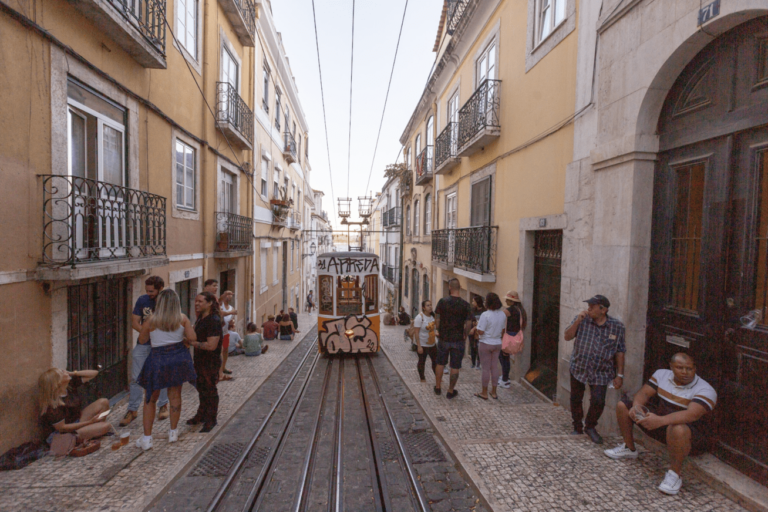
I have my own dreams of a life like this. The Wi-Fi is as strong as the mojitos, every day involves a skinny dip or scooter adventure, and I make money in my sleep. South East Asia, with its affordable lifestyle and palm-lined beaches, is always where my mind seems to drift. Yet, since Covid came along, it’s been Portugal that’s risen to the top of every remote worker’s wish list. But why?
I went to find out and discovered a number of convincing reasons for Portugal’s popularity. Its location in Europe (during the pandemic, nomads wanted to be just a short flight away from home), relative affordability and general livability of its cities are major factors. It’s been the local governments’ general embracing of digital nomads, however, that’s really made an impact.
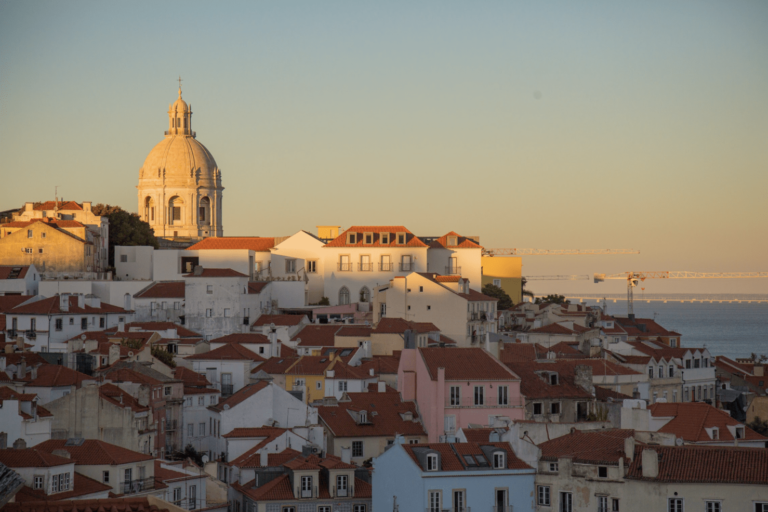
Take Madeira. Like most tourist destinations during the pandemic, the ‘Pearl of the Atlantic’ had a slump in visitors. So, at the start of 2021, the regional government created a ‘Digital Nomad Village’ aimed at attracting those who were able to bring their work with them. It offered travellers accommodation and a free working space – the only requirement was that they stayed for at least a month. There were all kinds of things on offer, including entrepreneurship meet-ups, jam sessions, jazz nights, sports training, fitness clubs, cryptocurrency investment events and mindfulness circles.
‘We were hoping for 500 registrations in total, we got 200 per day!’ says Micaela Vieira from Startup Madeira. To date, the project has welcomed 13 000 nomads from more than 125 countries, with ages ranging from 18 to 80 years.
Then there’s Fundão, a rural town in the hinterland. A few years ago, the savvy and energetic mayor, Paulo Fernandes, came to power in a region with a dwindling population and struggling economy. He converted the beautiful but dilapidated old town buildings into co-working spaces for tech-industry workers. ‘In four years, Fundão has attracted 14 information technology companies, created more than 500 jobs and boosted an ecosystem that generated 68 startups and projects,’ he wrote recently.
Cafés there now have Romanian coders passing sugar to Canadian data scientists. Their arrival has breathed new life into an old town. But Madeira and Fundão are not the only ones – there are stories like this everywhere.
Lisbon, a hotspot for digital nomads
I spent my first few days in Lisbon sightseeing – I ate pasteis de nata in Belém, caught antique trams up steep hills, watched sunsets from the lookout points high above a sea of terracotta tiles, got lost in Alfama, spent too much money on a hat, and visited the palaces in Sintra. Once that itch was scratched, I started excavating the digital nomad scene.
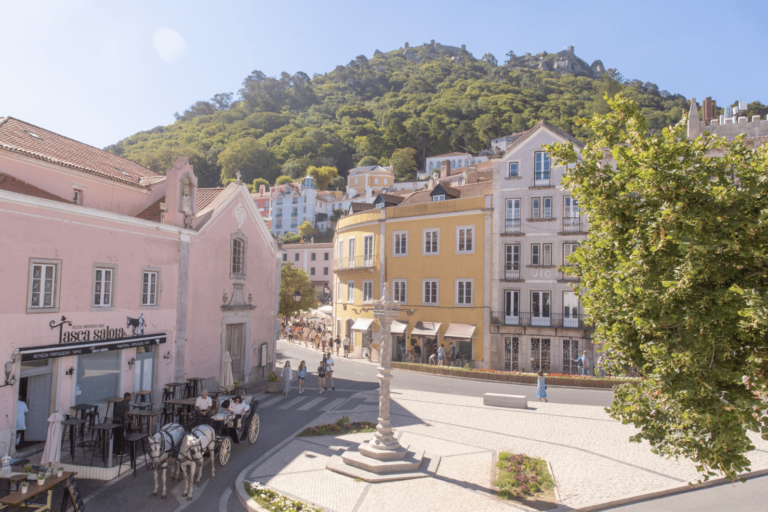
Lisbon is widely regarded as the best place in Europe to live as a digital nomad. What nomads love best about it, I learnt, is the sense of community among freelancers. Many co-working spaces have co-living accommodations and almost all arrange meet-ups.
‘Personally, the value of the community has been one of the main reasons why I decided to come back here after a couple of months away,’ Italian content writer Dario Villirilli told me. ‘I’ve been a digital nomad for four years and it was only in Lisbon I found so many people of my same tribe, with the openness, vulnerability and maturity to have deep conversations and share each other’s experiences to grow together.’
I met up with a friend from Cape Town who was spending a few months there, creative director Sonny Hoosain, and asked him what he thought of Lisbon. ‘It’s just got this energy to it. There are events happening almost every night, there’s live music on every other corner and there’s so much happening in the digital nomad scene, so it just feels like the place to be.’
The flipside is that rental prices have skyrocketed. This has created some friction with the locals, since many live off much lower incomes and are forced to move outside the city centre. But for the most part, I’m told, locals have welcomed the financial boost.
Cascais, the Portuguese Riviera
It took me just a few steps out of the train station at Cascais to hear my first South African accent. The second came soon after, as did the third. By the fourth, I was so discombobulated, I thought the train had somehow dropped me off in Mossel Bay during December holidays. I asked Adrian Roux, a South African property investor who has been living in Cascais for the past four years, what the deal was. ‘Recently, the flow of South Africans moving to Portugal has turned into a deluge,’ he told me. There’s even a Facebook group with 20 000 members called “South Africans helping South Africans in Portugal”.
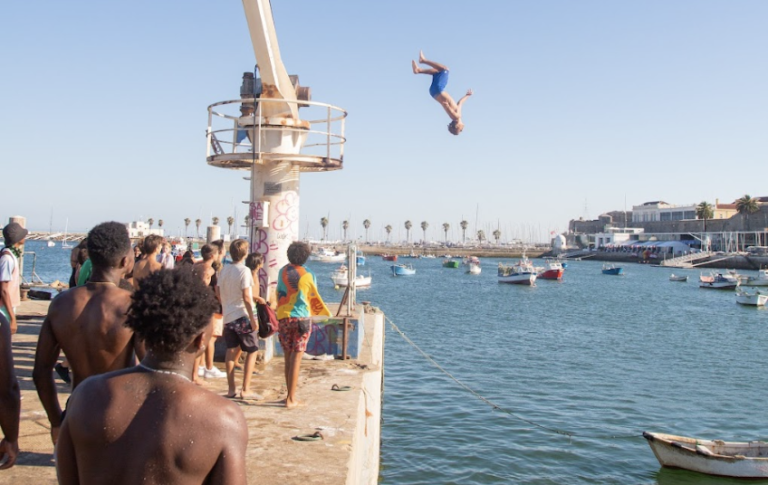
The Golden Visa is most South Africans’ ticket to Portugal. It’s one of the most popular residency-by-investment programmes in Europe and allows you to qualify for residency by investing R7 million into a property or business – one of the lowest investment thresholds in Europe. You don’t even have to move to Portugal to keep your residence permit – staying in the country for just seven days a year is enough.
I can understand why they’ve chosen Cascais as their destination. Just an hour from Lisbon by train and with 17 beaches, Cascais is the much-loved summertime playground of wave-frolicking Lisboêtas. It’s where Christopher Colombus first arrived with his news of a new land and, in the mid-19th century, was the place where the Portuguese royal family first started bathing. My favourite Cascais fact, however, is that Bryan Adams lived there between 1967 and 1970, from nine to 12 years old, which means that it’s where he spent his ‘Summer of 69’.
The locals will tell you the ocean, the food and the endless days of sunshine (about 300 a year) make Cascais an ideal destination for remote work. The only downside is that there’s a surcharge on just about everything in this ever-popular seaside destination. Despite that, there is a considerable number of remote workers who drift in and stay.
There are buildings entirely devoted to digital nomads, freelancers and anyone else wanting to work away from home. DNA Cascais, for example, is a coworking site as well as a business incubator that’s designed to ‘develop skills and knowledge by promoting and stimulating creativity and innovation’. In the past 14 years, it has helped 424 new companies and thousands of young entrepreneurs. Ultimately, though, Cascais is probably a better place to visit, rather than stay, thanks to its inflated prices. It’s the tourist region in the far south, the Algarve, where the beach-seeking digital nomads spend most of their time.
Lagos, a slower pace of life
As tourist towns go, Lagos has got the lot. The port town, which launched many naval excursions during Portugal’s extraordinary Age of Discovery, lies along the bank of the Rio Bensafrim. Its old town’s pretty, cobbled lanes and picturesque squares and churches are enclosed by 16th-century walls.
Tourists flock to Lagos to explore the beaches, go on boat trips and hit the bars. On my mornings there I’d walk to the co-working office at 8am. As the rising sun slipped its golden claws down the alleys of the old town, I’d walk past old women ambling to start their day and stragglers from the night before, beers in hand and defiance in their voices.
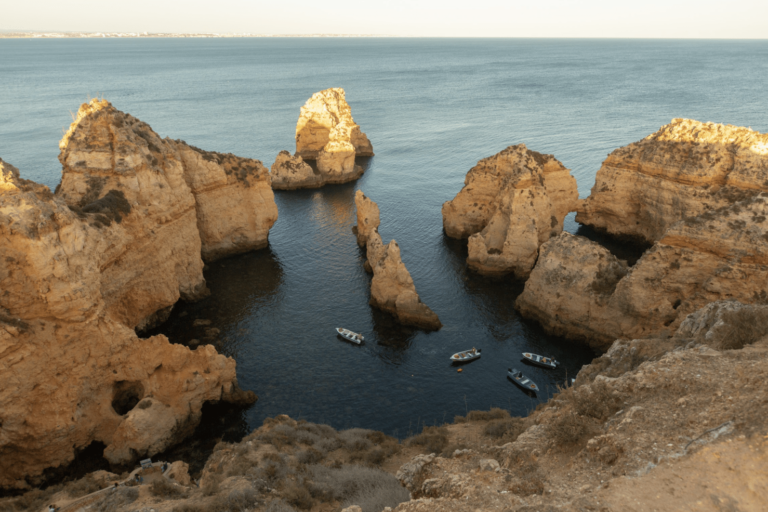
I met Joana Gloria who runs a company called Lagos Digital Nomads. ‘We get “Slow Nomads” here, who want to enjoy the location for a long time – six to nine months,’ she told me at a cafe in the marina. ‘One of their key features is they come from summer to summer, out of the tourist season. This allows businesses to stay open in winter, which is a game changer for us.’
While startups and techies like Lisbon, more holistic people prefer Lagos. They love the ocean, slower pace of life and community. They go to the beach, do a bit of work, watch the sunrise and sunset. ‘They say they’re attracted to some kind of energy down here in Lagos. We have meet-ups every week. There are workshops, talks, community dinners and speed mentoring, where a group of people use their knowledge and experience to assess each other’s ideas.’ There are even boot camps where digital nomads give support to local businesses and help them innovate.
Ultimately, maybe that’s where this digital nomad ecosystem could get to – a more holistic way of life, where they give back to their destination beyond just financial contributions, to ensure their presence is wholly embraced. Either way, after everything I saw, I can confirm it’s a very enticing lifestyle, and that Portugal deserves its place at the top of the digital nomad directory.
What about a South African Digital Nomad Village?
The man behind Madeira’s Digital Nomad Village, Gonçalo Hall, is taking the concept to Brazil. He predicts that the South American village will generate $36 million a year. Besides the bucketloads of sun and all-round paradise vibes, there are other benefits to working in Brazil. Chief among those is that, for those working for European countries, the time difference (between four and six hours) is ‘much more manageable than the likes of Costa Rica or Bali’, says Hall. Which begs the question: what about South Africa? Loadshedding, safety issues and expensive flights from Europe don’t work in our favour – but the weather, affordability, lifestyle, time zone and natural beauty sure do. President Cyril Ramaphosa said in his February 2022 address to the nation that South Africa would offer a digital nomad visa in the future, which would sweeten the deal even more, yet as of going to print, no official progress had been made.
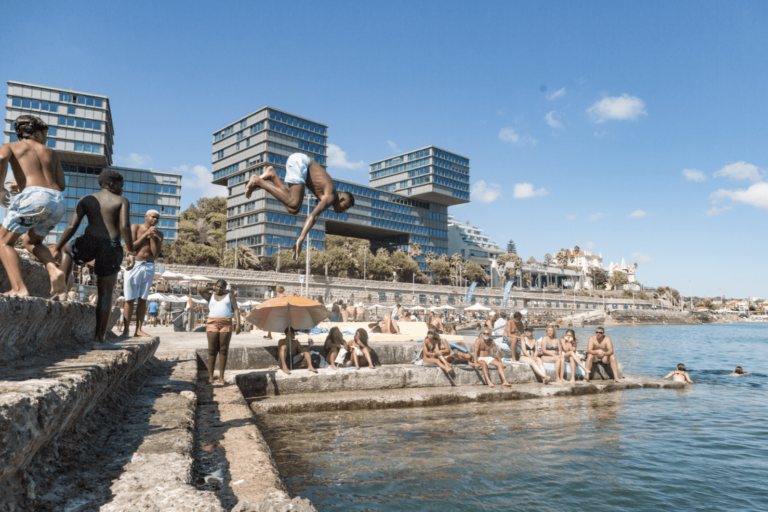
Trip Planner. A guide to becoming a digital nomad in Lisbon
Visas
In 2022, Portugal introduced a temporary stay visa aimed at digital nomads. It allows you to stay in the country, with multiple entries, for up to a year. It also allows you to travel visa-free through the Schengen Zone. To qualify, you must prove you’ve earned R47 000 a month for the past three months.
Online forums
Lisbon networking groups on Facebook you could join include Digital Nomads PT and Lisbon Digital Nomads.
Where to stay
Outsite has accommodation aimed primarily at digital nomads. It has 30 hotels around the world that are a combination of co-living and co-working. Its spaces vary widely in size, with 25 bedrooms at its Lisbon property and just seven in New York. The former has a fully equipped kitchen, sheltered terraces and cosy lounges, with complimentary access to Cowork Cafe in Cais do Sodre. outsite.co
Selina goes one step further and offers plenty of local activities and experiences on top of its accommodation, in more than 163 destinations worldwide. Selina Secret Garden hotel in Lisbon is near the city centre and has everything you need, from coworking spaces with free Wi-Fi to yoga lessons. Features include a rooftop deck, patio and pool.
Living in Lisbon is cheap compared to other European capitals, but has been getting more expensive in recent years.
Pro tip: find the best neighbourhood to live in Lisbon based on your preferences with hoodpicker.com
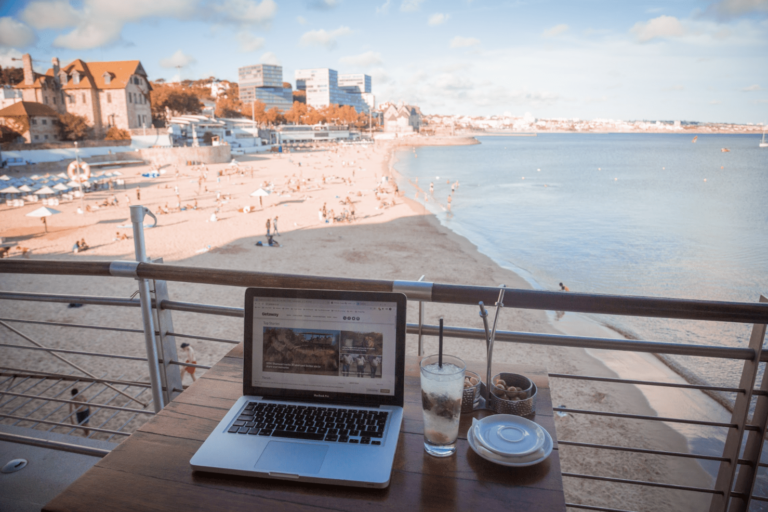
Where to work
Space to think is the big appeal of Heden, tucked into a busy square in Graça. Co-working spaces share a site with artists’ studios and a venue for talks and events, ensuring plenty of creative crossover. You can have super- healthy and affordable lunches at A Padaria Portuguesa and relax in Jardim da Cerca da Graça between work sessions. heden.co
Some co-working spaces can feel a bit like an Ikea showroom, but Workhub Lisboa (From R2 140 per month per desk) has a gorgeous location in the old Abel Pereira da Fonseca wine warehouse, in the up-and coming neighbourhood of Poço do Bispo. The internet connection is lightning fast and there’s a casual lounge space, with desks and private offices rented by the month. workhub.pt
Made out of 14 shipping containers (and two double decker buses from the ‘60s), Village Underground is not your average co-working space and takes the cake for the coolest option in Lisbon (no easy feat). From R3 300 per month per desk, vulisboa.com
A version of this article originally appeared in the February 2023 print issue of Getaway.
By Matthew Sterne.
Pictures: Gallo Images/Getty/Robertp Moila/Sysaworld, Laurenco Abreu/Workhub.pt
Follow us on social media for more travel news, inspiration, and guides. You can also tag us to be featured.
TikTok | Instagram | Facebook | Twitter
Also Read: Enchanting Montagu: small town form and function
[ad_2]
Source link
Jarastyle – #Living #digital #nomad #dream #Portugal
Courtesy : https://www.getaway.co.za/destinations/world/living-the-digital-nomad-dream-in-portugal/

